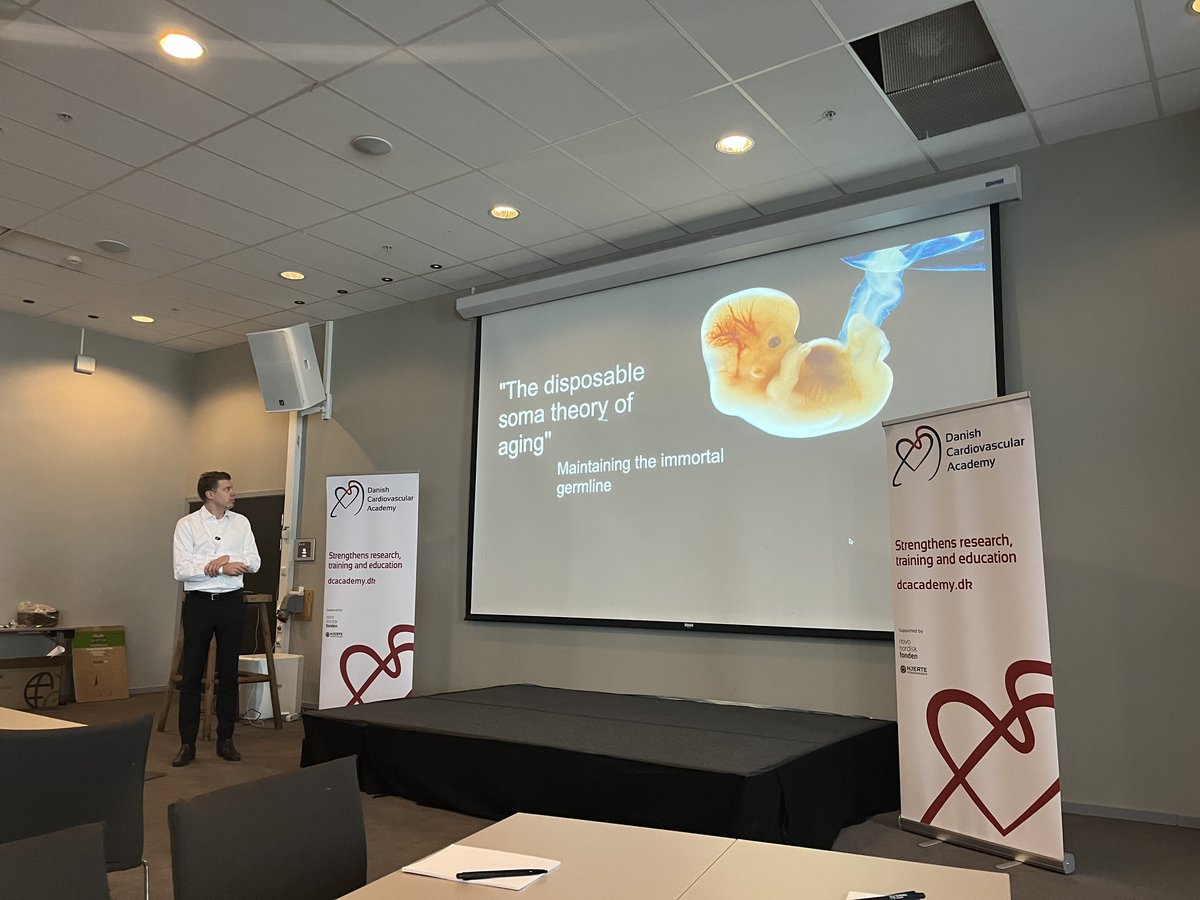DCAcademy Winter Meeting 2024: Five Days Wiser
Read the student written minutes from this year's DCAcademy Postdoctoral Winter Meeting 2024. The minutes are written by Andrietta Grentzmann, PhD-student, Beatriz López Ramos-Neble, PhD-student, and Arnela Saljic, Assistant Professor.
45 early-stage researchers have embarked on the ferry to Oslo and Norefjell for the DCA Winter Meeting 2024
The time is 11 am on February 27th, 2024, in Copenhagen. 45 early-stage researchers (PhD students and Postdocs) have embarked on the ferry to Oslo and Norefjell for the DCA Winter Meeting 2024 themed “Aging in cardiovascular diseases”. One of the initial speeches was given by Lars Bo Nielsen, the general director of the Danish Medicines Agency. He emphasized that the growth of our elderly population is parallel to the rising costs in Danish municipalities. It is not surprising to hear that, as people age, their health tends to decline. Indeed, varying comorbidities become just a matter of when and not if they will occur.

Getting wiser on this year's theme "Aging in cardiovascular diseases"
What happens when a medication is created to treat the main cause of illness globally? Breaking news: we have arrived. The GLP-1 analogs have transformed the field of medicine by producing quick and crucial effects on conditions such as obesity and T1D. However, in his presentation, cardiologist and research director at the Danish Heart Foundation, Gunnar Gislason, questioned whether the GLP-1 analog Wegovy could be viewed as both a blessing and a curse. With a price tag of approximately 2000 DKK per month, only those in the higher class of society can manage to pay for it. Although this treatment is saving lives, it also carries a major cost for individuals and sparks numerous ethical and sociological debates with conflicting arguments.
It is crucial to combine GLP-1 treatment with overall health guidance on exercise and a better diet, not only for the patient's post-treatment life but also for the financial aspect, when the lifelong treatment is needed. Nevertheless, as associate professor and anthropologist Alexandra Brandt Ryborg Jønsson mentioned in her speech; "It may be simple to advise the elderly to improve their diet and engage in more physical activity, but what if they are not willing to follow that advice, then what?". Patient viewpoints and willingness to follow the recommendations are crucial factors when treating the elderly population. Providing a diagnosis and care may be straightforward, however, their self-perception and mental health are frequently disregarded. Research professor Marja Aartsen's presentation revealed that many senior citizens experience feelings of loneliness or social isolation, as demonstrated by social science studies. Both researchers agreed that overcoming these problems come from enhancing communication between the elderly, caretakers, and primary care physicians. This aligns closely with consultant Kresten Schultz Jørgensen's statement in his introductory speech; "Communication involves a two-way conversation, not just a one-sided transfer of information". He also pointed out the significance of emotions in communication, emphasizing the importance of being honest with yourself and others to establish trust. Our healthcare system is obviously under pressure, and the aging population is just one many contributing factors. A possible answer? Communication and engagement from all parties involved. The discussion on the aging population illuminates the complicated intersection of communication, economics, patient viewpoints, and societal factors.

This year's challenge of the meeting revolved around the health science ecosystem
This year's challenge of the meeting revolved around the health science ecosystem, determining our role as researchers and how we can impact and engage with the community. The connection between our health science ecosystem and the aging population was obvious during brainstorming sessions with challenge groups, as most stakeholders have ties to the aging demographic. Primary healthcare is crucial for the elderly and is impacted by both the pharmaceutical industry and academia. This is where the health science ecosystem meets the aging population. As researchers, we are at the core of our network of stakeholders, providing the knowledge and innovation that can influence healthcare practices and outcomes. By engaging with both the scientific community and the general population, we have the potential to shape the future of the healthcare system, particularly in addressing the challenges posed by an aging population.
This brings us to the following challenge: how can researchers impact our health science ecosystem and where should we begin? During the final meeting day, it became clear to everyone that the key point is - beginning with us. It is important for all of us, as researchers, to actively communicate and share our expertise with the public and stakeholders, while also including social media discussions about recent articles, sharing patient experiences, and connecting with researchers of all levels at conferences, as suggested by participants. And when doing this remember Kresten's words about communication and establishing trust. He also addressed the decrease in trust in higher authorities, possibly influenced by the impact of digitalization and shallow connections. Being the future generation highlights our responsibility to change things by remaining authentic to who we are. The most important advice from Lars Bo Nielsen encapsulated it perfectly; "Be on time and be nice to other people"; the simplicity is striking yet the point is unmistakable.

Now, you may be wondering what you gained from spending a few minutes reading this text...
Although our health science ecosystem can be complicated, our message remains clear: be authentic, participate actively, and dare to make a difference. Suggestions from the participants were: begin a podcast, craft a LinkedIn post to ignite a debate or discussion, compose your initial tweet, or create a popular science summary. Create a mind map of your health science ecosystem and explore areas where you can have an impact.
In essence, the aging body plays a vital role in current and future research and must be acknowledged and honored in our healthcare system through effective communication across all sectors. After we got off the ferry in Copenhagen on the 2nd of March, we had not just aged five days, but also gained five days of knowledge; incredible medical breakthroughs are fantastic, but they come at a cost. We represent the next and future generation but also play a role in the aging population. Our time is now, let’s make it count!
